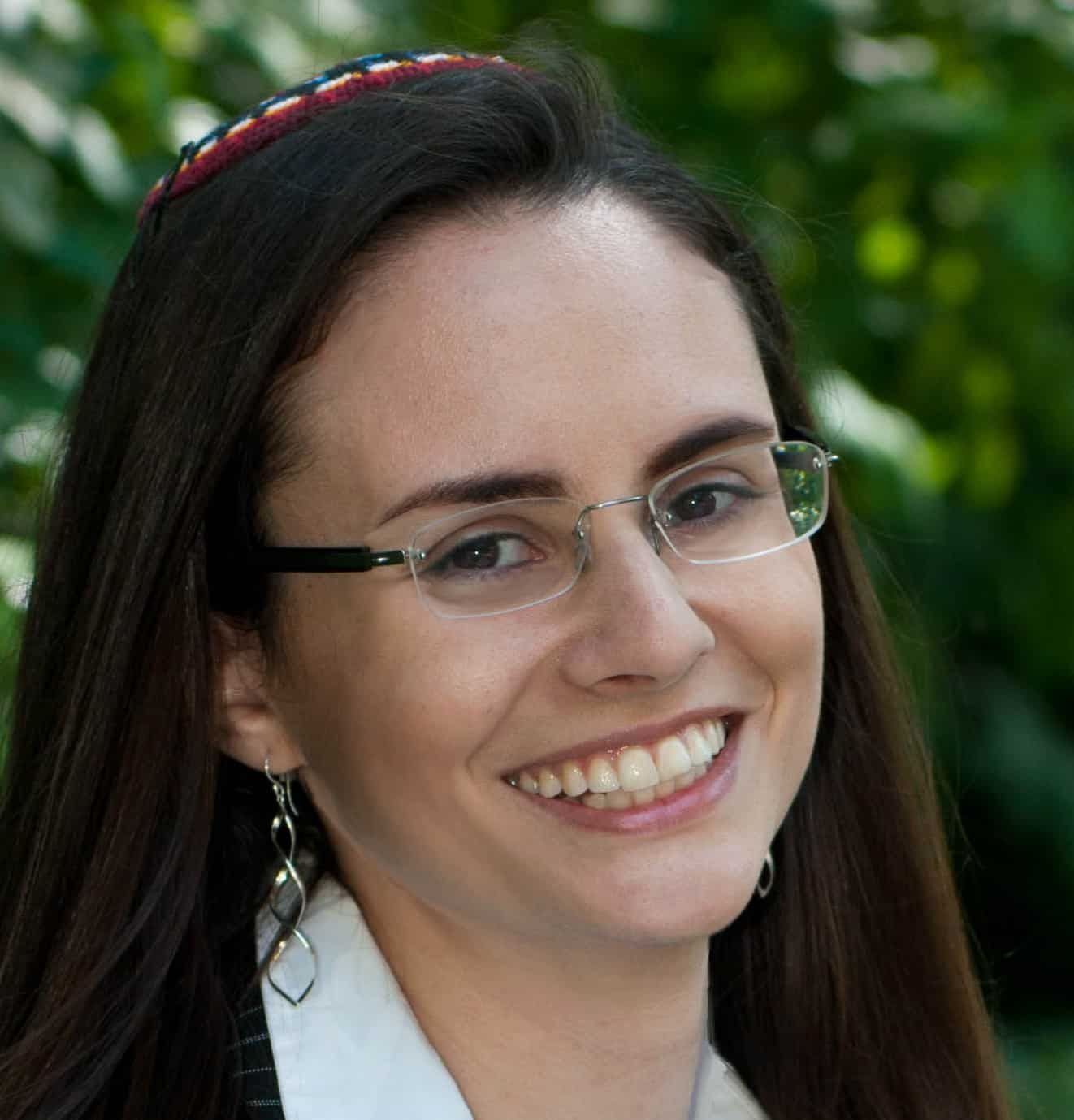“Anyone can be a matchmaker, and everyone should,” said Rabbi Raysh Weiss, senior co-rabbi at Temple Israel of Natick, as she introduced her talk on “Matchmaking 101: Channeling Your Inner Matchmaker.” Over the years Rabbi Weiss has been a matchmaker and has trained others to take up what she calls “a holy pursuit.”
Rabbi Weiss spoke recently to Temple Israel’s sisterhood about her love for and dedication to the goal of helping people meet their bashert (alternately defined as intended, destined, soul mate). She pointed out that the first matchmaker we read about in the Torah is Abraham’s servant in parashat Chayei Sarah (Life of Sarah) in Genesis. The servant is sent to Abraham’s ancestral home to find a wife for Abraham’s son Isaac. “In a sensitive, vulnerable moment, he asks God to help him in his sacred assignment,” said Rabbi Weiss.
The rabbi believes that we live in interesting times when it comes to marriage. She pointed out that the number of marriages is down; in some countries dramatically so. Twenty-eight percent of U.S. homes have a single head of household; in 1960 it was 13%. While among the ultra-Orthodox, said the rabbi, “matchmaking is alive and well,” this is not the reality in other Jewish communities.
In fact, the head of the Labor party in Israel, Merav Michaeli, who is in a committed relationship, held a TED talk called “Cancel Marriage” in 2017. She called marriage a legal, political and financial choice, which she finds oppressive, and which she believes holds women back. “Listening to this made me think, how can we make marriage better?” said Rabbi Weiss. “What can the community do?” She is also concerned about bad marriages, of which she is well aware. And she is aware that there are professional matchmaking services that cost $675 to $25,000 for a one-year contract.
“The matchmaker and client should have a long intake session with questions such as ‘What are you seeking?’” explained Rabbi Weiss. She has observed that: “Every Jewish single wants someone who is highly educated, which says a lot about who we are. This is true of men, women, straight people and gay. They are also looking for respect, kindness and fidelity.” Challenges to meeting one’s bashert include how geographically scattered people are these days, and the fact that people tend to work long hours, leaving little time to meet someone.

Rabbi Weiss was interested in matchmaking long before she became a rabbi. She was aware that popular sites such as JDate and JSwipe are not free. She talked to a friend who had tried JDate, which wound up recommending the friend’s own brother! Rabbi Weiss felt she had heard “a call to action.” She did research and found ways to bring together those she knew who were looking for their bashert.
Eventually she moved to New York to attend rabbinical school at the Jewish Theological Seminary, where she met her husband, Rabbi Jonah Rank. “There were lots of Jews in New York,” said Rabbi Weiss. “But it was especially hard for female, heterosexual students to meet guys. One issue is that men tend to marry women who are younger.” She started to set up friends, and the word went out. “A good number of the matches I’ve made,” added Rabbi Weiss, “were of LGBTQIA+ couples.”
While in New York she founded YentaNet, staffed by volunteers. The organization offers “Personalized Pluralistic Matchmaking for the 21st Century,” according to its website, by training matchmakers. “I think it’s important that we prioritize groups that have fewer matchmaking resources,” said Rabbi Weiss, “such as gay Jews, seniors, Jews of color and Jews of different abilities.”
In the most recent issue of Hadassah Magazine, digital editor Arielle Kaplan describes her challenges with meeting her bashert, even with the availability of matchmaking apps. Kaplan describes a “shidduch (matchmaking) renaissance that started during the COVID-19 pandemic.” There’s MeetJew, Lox Club, SawYouAtSinai (often used by the Orthodox) and Yenta Over the Rainbow (for LGBTQIA+ Jews). And many more. Some groups stage in-person events, while some work via Facebook. Others provide speed-dating sessions before their events.
“Every person has the potential to be a matchmaker,” said the rabbi. “We all know people. Mutual friends are still the best way to meet.” What matchmakers should say to their clientele, according to Rabbi Raysh, is, “let us be your personal shopper for your love life.”
Additional advice from Matchmaker Weiss is to stick with the person you’re seeing and no one else. “Ease into it,” she suggests. “Don’t settle.” On the other hand, people can have unrealistic criteria. These include “I want to meet a six-foot guy” and “I want someone who’s wealthy.”
Her best advice: “You need to put yourself out there.” Since becoming a full-time congregational rabbi and mother of young children, the rabbi has scaled back on matchmaking, but it is still near and dear to her heart. “I would be thrilled to train people again,” she said. “I’m really passionate about this. It is the most important decision a person can make.”
Hadassah’s Kaplan has yet to meet her “King David,” as she describes her bashert. After a recent event sponsored by MeetJew, she said, “For the first time since my biological clock began ticking [she’s 28], I felt a wave of reassurance knowing that the matchmaking renaissance was in full swing.”
After the talk I thought about whether I had successfully introduced anyone to their bashert. Then I remembered. A while back, I introduced a friend from work to a good friend’s best friend. That December I invited them to a gathering at my apartment. They were engaged by February. At the wedding, the band played “Matchmaker, Matchmaker” in my honor. My friends have been married for 41 years. Oh yes, it’s a holy pursuit!
This post has been contributed by a third party. The opinions, facts and any media content are presented solely by the author, and JewishBoston assumes no responsibility for them. Want to add your voice to the conversation? Publish your own post here. MORE



